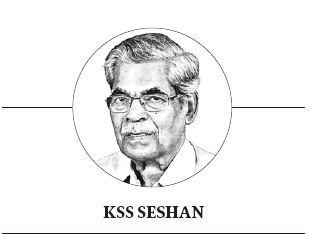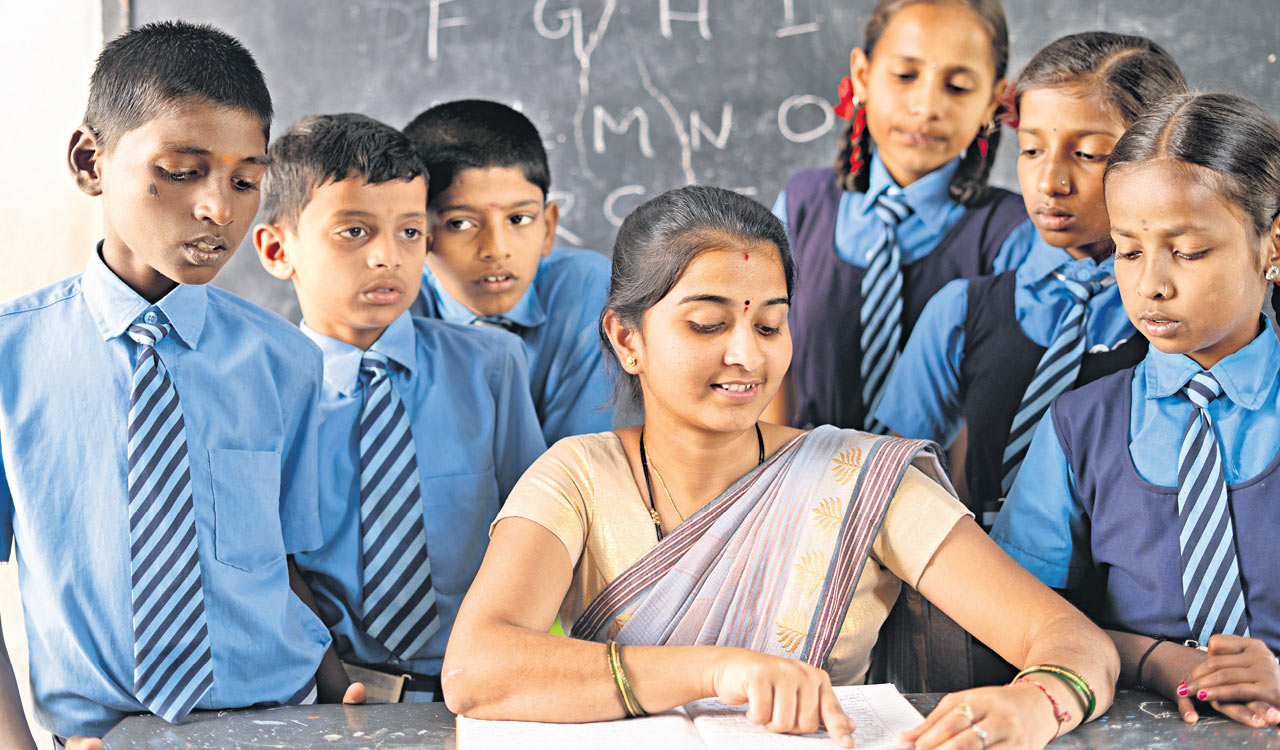The role of the English language must be assessed from the perspective of the growing socio-economic needs
Published Date – 27 February 2024, 11:45 PM

By KSS Seshan
After the Andhra Pradesh government announced three years ago its intention to have English medium education in government schools, Telangana also followed suit and in the very next year, English was introduced from the primary level, making it clear that it was aimed at the development of communication skills among the children. Both governments, AP and Telangana, clarified that the introduction of English was not at the cost of Telugu language and literature, and that the role of English would only be with regard to skill development among students.
General Acceptance
The overwhelmingly positive response from educationalists, educational administrators, parents and teachers on the introduction of English as a medium is a clear sign of the general acceptance of the government’s language policy by the stakeholders. Within two years of such a shift in the medium of instruction, there seem to be signs of success of the bold decision. Reports indicate that the ‘English practicals’ introduced by the Telangana State Board of Intermediate Education to improve communication and writing skills among students is being replicated by several other States in the country like Bihar and Sikkim. It is also gratifying to note that the Central Board of Secondary Education (CBSE), New Delhi, too has evinced interest in the Telangana model of English practicals, to hone the language skills among students.
When AP and Telangana governments decided to go for the introduction of English as the medium of instruction and convert the existing Telugu medium into English, it was opposed initially, though ostentatiously, by cartels of a few corporate schools and other vested interests. Still, the governments went ahead with a strong political will as parents, students and well-meaning educational activists supported it. Various Dalit groups and NGO organisations from several parts of the country held rallies in AP and expressed solidarity when it proposed a change in the medium of instruction. English education, they felt, would usher in a social change and serve as a tool to liberate the poor and the marginalised sections of society.
Kind of English
The apprehension against English as a medium is also based on the notion that while learning English, there will obviously be a neglect of the mother tongue. There is no reason to fear that English education would be at the cost of the mother tongue. It is only the language ‘English’ that is adopted to serve the academic needs and not English literature. The language and literature are to be seen differently and not to be assumed as one. Prominent Indian writers in English like Raja Rao, Mulk Raj Anand, RK Narayan, Kamala Das, Salman Rushdie and Anita Desai wrote in masterly English language without losing sight of Indian ethos and culture. Rabindranath Tagore’s English was hailed by famous English writers such as YB Yeats and James H Cousins.
Shashi Tharoor’s English vocabulary skills are well-known. For them, English is just a language to negotiate with their creative writing skills.
English as a subject, when taught right from the primary level, will provide every possibility for the children to develop better communication skills in that language. As the present age is rightly said to be the software, internet and information technology-driven age, the future young Indian workforce will have better opportunities in the competitive world for employment and services. Even skilled workers like an electrician or a plumber cannot function without English words like wire, pipe, switch, bolt, nut and rod. But due to a lack of language skills, they end up making an invoice with crazy spellings based on the pronunciation of their own mother tongue.
Vehicle of Thought
As language is only a vehicle of thought, the role of the English language is to be assessed from the perspective of the growing socioeconomic needs without losing sight of the literary and cultural necessities. It is an undisputed fact that creative writing and literary growth can only be through the mother tongue and it is to be taught for every child at the school level. However, English has come to stay all over, both within the country and outside, as the link language — a language without which one cannot imagine being a ‘world citizen’ today. In view of the increased role of English, it is imperative that children in our schools are taught that language so that tomorrow they will not lag behind others.
Further, parents and parent organisations who hitherto were agitating over the exorbitant school fees charged by private and corporate schools run in English medium, can feel happy as now they can as well shift their children to such government schools and thus save themselves from the menace of the expensive corporate schools.
The introduction of English and conversion of the existing Telugu medium to English is sure to have its own challenges. In the first place, teachers are to be trained for the new task. The standard of communication in English, at present, among the teachers in government schools, particularly in rural areas, is anybody’s guess. Therefore, teachers must be trained intensively through Teacher Induction Programmes by involving existing institutions like The English and Foreign Languages University (EFLU). Next to the role of teachers lies the preparation of reading/teaching materials used for the teaching of subjects in English.
Highly comprehensive and well-tried methodological approaches in teaching children whose mother tongue is not English are something which must be planned and executed by experts. Infrastructure too must be upgraded in schools. The flagship schemes ‘Mana Ooru – Mana Badi’ in Telangana and ‘Amma Vodi’ in Andhra Pradesh are sure to supplant governmental efforts with the participation of the local people and with the willing cooperation of the NRIs in improving the existing facilities at the village schools in both Telugu States.

(The author is retired Professor of History, University of Hyderabad)




